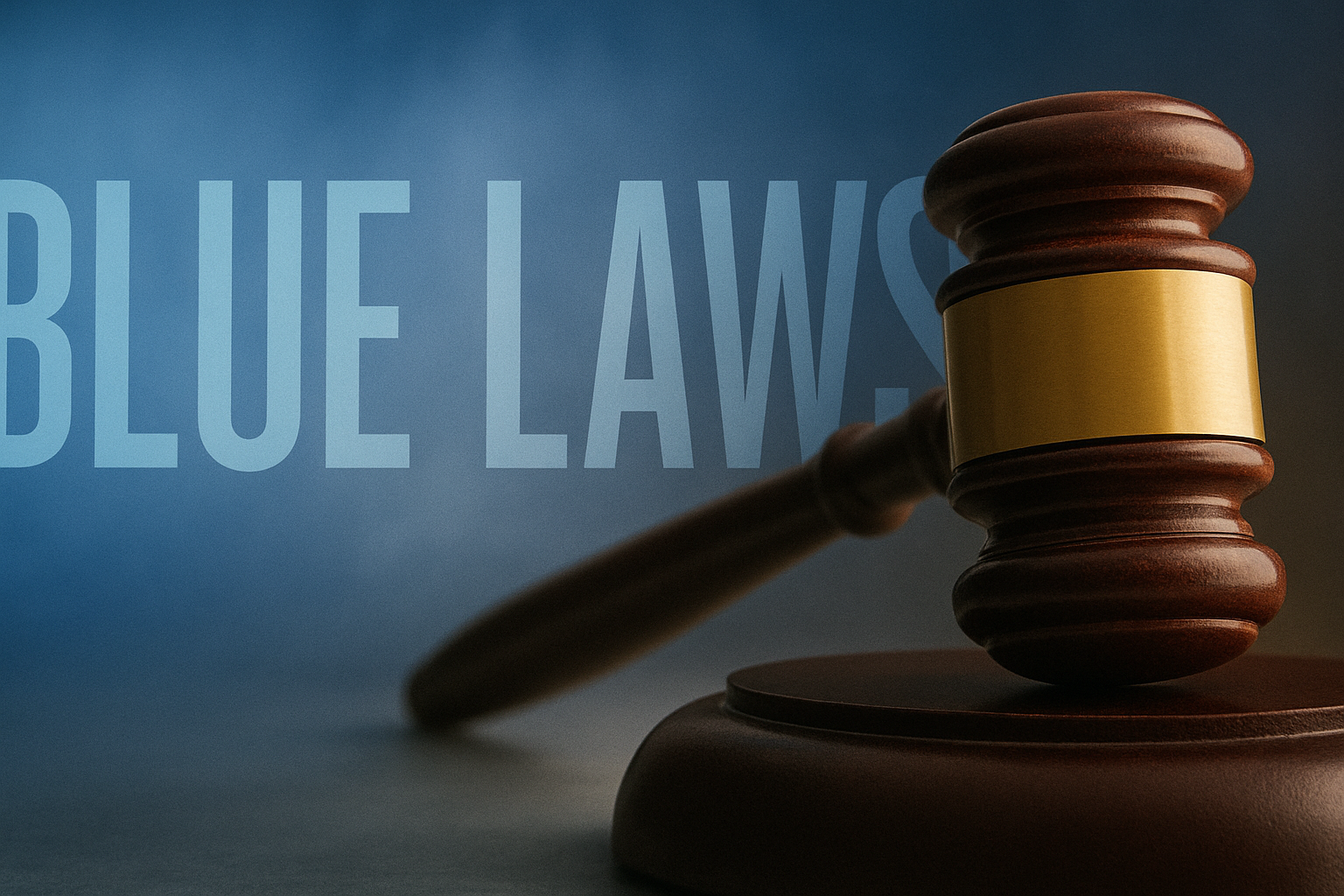
In an August 21, 2025, article titled “Whatever Happened to the Blue Laws?,” Pastor Marc Herbst of Saint John’s Evangelical Lutheran Church reflects on the decline of Sunday blue laws in America. He notes that in past decades, particularly up through the 1970s, Sundays were marked by legal restrictions on businesses and recreation, preserving the day as one of worship and rest. He recalls how stores were closed, car dealerships were shuttered, and Sunday was distinctly quieter and more reverent.
Pastor Herbst laments that most of these laws have now vanished, leaving Sunday to be regarded largely as just another part of the weekend rather than a sacred day. He expresses sorrow over the cultural loss of Sunday as a time set apart for spiritual renewal, yet he urges believers to reclaim the day voluntarily, using it as an opportunity for rest and restoration even without the enforcement of blue laws.
Evangelical Pastor Marc Herbst expressed the following:
• “Some of you might remember when Sundays felt different. Not just quieter, but legally quieter. In the not-so-distant past, ‘Blue Laws’—rooted in colonial America and influenced by Puritan traditions—prohibited certain activities on Sundays to preserve the Sabbath as a day of worship and rest. These laws restricted everything from buying alcohol to opening retail stores.” [1]
• “New York’s Blue Laws were once strict. As recently as the 1970s, most stores were closed on Sunday. You couldn’t buy a car, and many recreational activities were curtailed. While remnants still exist, such as the ongoing ban on car dealerships opening on Sundays in New York, most of these laws have faded away. The shift reflects a culture that now treats Sunday as simply part of the weekend, rather than a distinct day set apart for spiritual renewal.” [1]
• “Even if Blue Laws no longer dictate how we spend Sundays, Jesus still invites us to use the day for restoration—of body, mind, and spirit. Let’s accept that invitation together.” [1]
By acknowledging that “Blue Laws no longer dictate how we spend Sundays,” Pastor Herbst does not reject the principle behind them. He simply notes their absence in the present day. This leaves the legitimacy of such laws intact and even suggests that their disappearance has created a cultural loss. Far from closing the door on their return, his words preserve the idea that society once benefited from legal restrictions on Sunday activities and might again in the future.
Pastor Marc Herbst’s article may seem like a simple reflection on blue laws and Sunday rest, but from a prophetic perspective, it reflects a growing sentiment that prepares the way for Sunday legislation. His invitation to honor Sunday voluntarily leaves the door open for compulsion later. By encouraging Christians to reclaim Sunday rest, Pastor Herbst is normalizing Sunday as the divinely intended day of renewal in society, setting the stage for later efforts to enshrine it into law.
His appeal to “Let’s accept that invitation together” is a call to come into unity and elevate Sunday observance as both a social and religious identity. Such language emphasized the ecumenical call to worship on Sunday, the common day of worship for all people. Revelation 13 warns that in the last days, the world will be led into a counterfeit unity of worship, enforced by law, and centered on Sunday sacredness rather than the true Sabbath of the Lord, Saturday, the seventh day.
“When the decree shall go forth enforcing the counterfeit sabbath, and the loud cry of the third angel shall warn men against the worship of the beast and his image, the line will be clearly drawn between the false and the true. Then those who still continue in transgression will receive the mark of the beast” (Evangelism, p. 234).
Sources
[1] https://saintjohnslindy.com/whatever-happened-to-the-blue-laws/
Leave a Reply